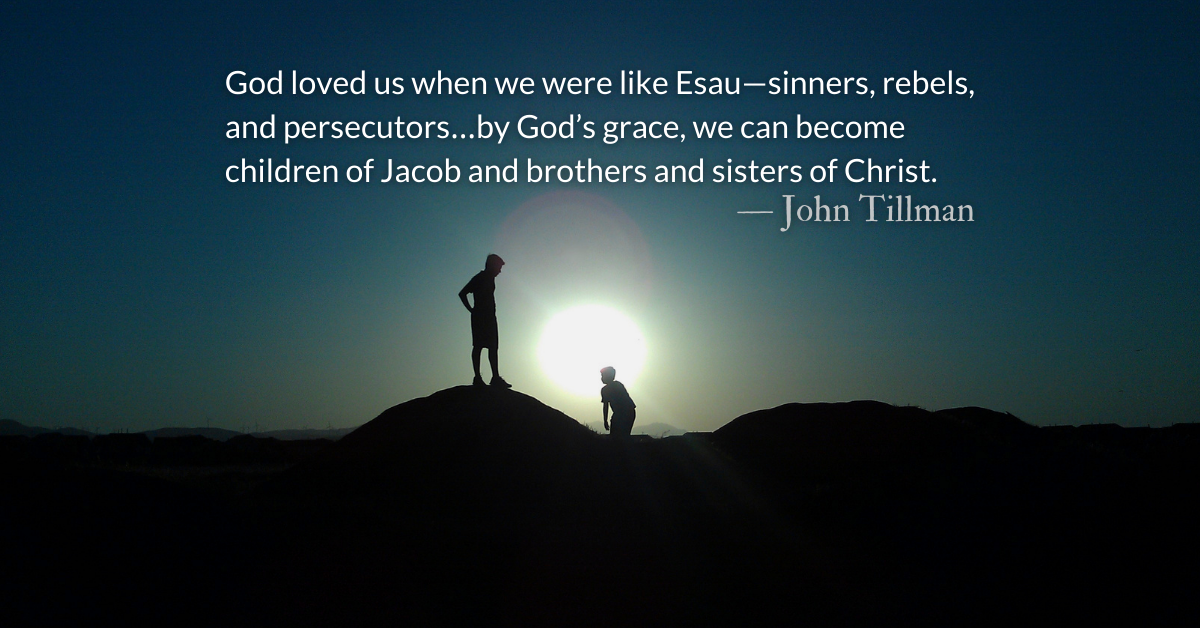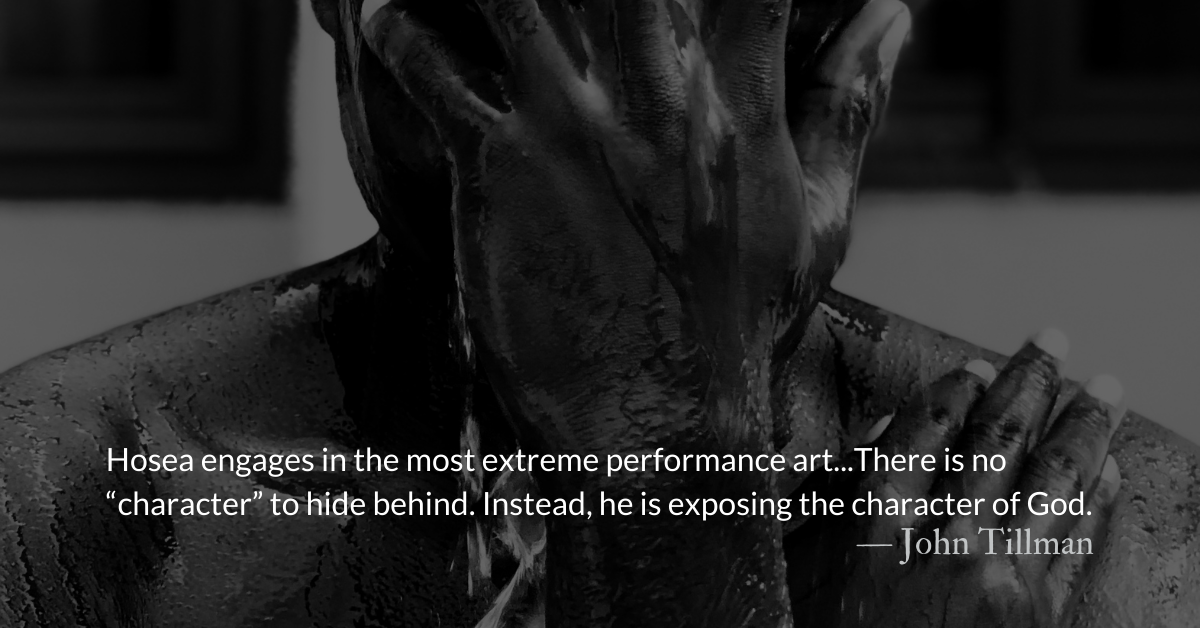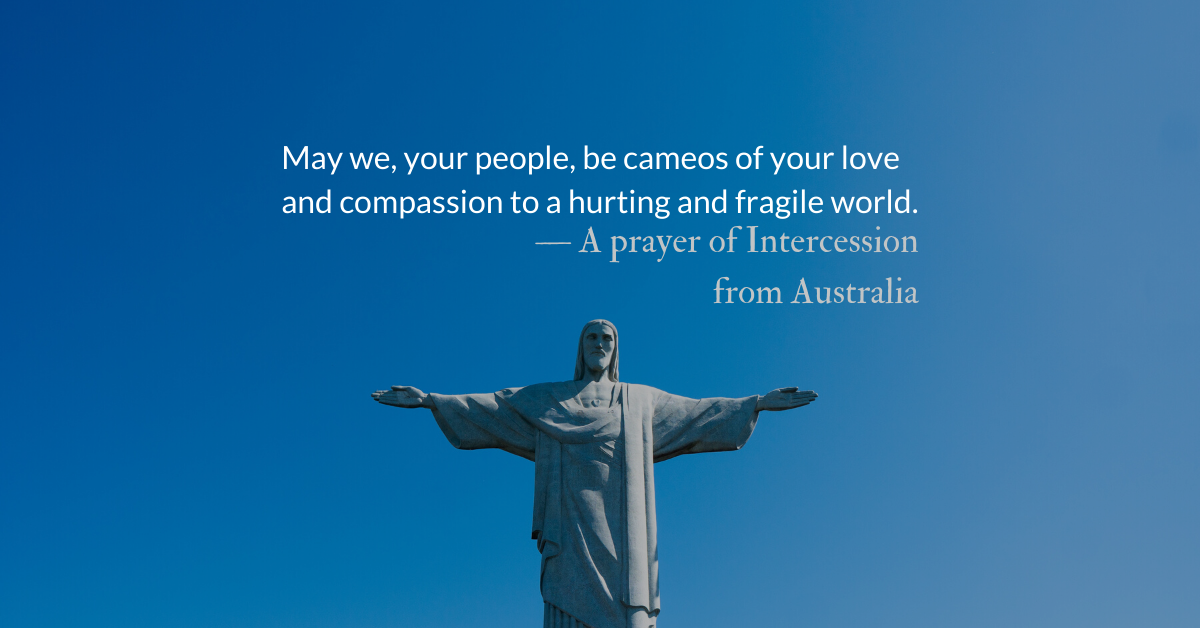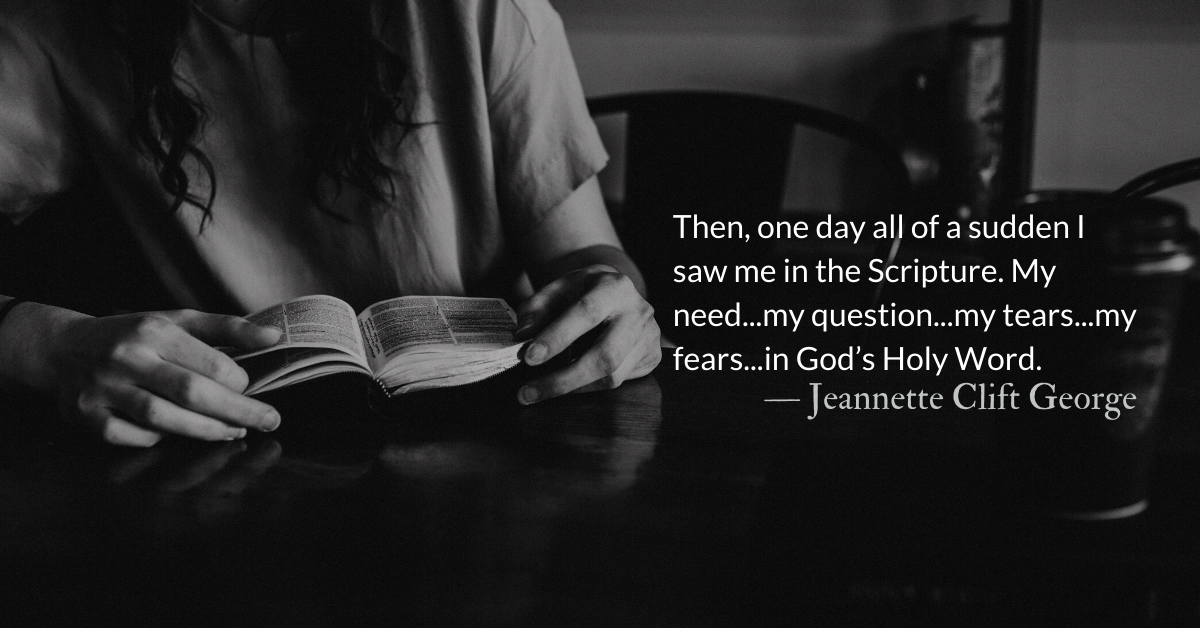Readers’ Choice Month:
This September, The Park Forum is looking back on readers’ selections of our most meaningful and helpful devotionals from the past 12 months. Thank you for your readership. This month is all about hearing from you. Submit a Readers’ Choice post today.
Today’s post was originally published, on June 2, 2022, based on Malachi 1.2-3, Matthew 12.48-50, and Romans 5.8
It was selected by reader, Barbara:
“This was one of my favorites.”
Scripture Focus: Malachi 1.2-3
2 “I have loved you,” says the Lord.
“But you ask, ‘How have you loved us?’
“Was not Esau Jacob’s brother?” declares the Lord. “Yet I have loved Jacob, 3 but Esau I have hated, and I have turned his hill country into a wasteland and left his inheritance to the desert jackals.”
Matthew 12.48-50
48 He replied to him, “Who is my mother, and who are my brothers?” 49 Pointing to his disciples, he said, “Here are my mother and my brothers. 50 For whoever does the will of my Father in heaven is my brother and sister and mother.”
Romans 5.8
…God demonstrates his own love for us in this: While we were still sinners, Christ died for us.
Reflection: From Esau to Jacob—Readers’ Choice
By John Tillman
“Esau I have hated.”
We may wonder: Does God randomly hate people? Am I one of those arbitrarily hated by God?
It is normal to struggle with difficult passages, especially those that have been misused. For example, some passages in Malachi 1, including this one, have been twisted to support slavery. Those who did this surrendered to culture and profit and selfishness, all the while proclaiming themselves wise, biblical, and superior. May we not make similar mistakes.
It’s impossible in a 400-word devotional to unpack a difficult passage like this. I won’t attempt it. Let us simply meditate on a few details from scripture.
- “Esau” doesn’t mean the individual. God is using these names as collective nouns to speak to the descendants of these brothers, not the brothers themselves. We don’t do this much in our culture. The closest thing we might understand is using the name of a country’s leader to refer to actions of that nation. For example, “Volodymyr Zelensky” meaning Ukraine, or “Xi Jinping” meaning China.
- God’s “hatred” isn’t arbitrary. It refers to justice for Edom’s actions—what they collectively did and continued to do. Esau, the individual, while reconciled to his brother, enjoyed God’s blessing. His descendants continually opposed Israel throughout their history and came to represent, poetically, all people opposed to God and God’s people.
- God’s “hatred” is not absolute. Edomites are not arbitrarily cursed or hated throughout history or in totality. In many places, God implies hope for Edom. He shows he cares for them, gives them their own land, and commands that no Israelite should despise an Edomite. (Deuteronomy 2.1-8, 12; 23.7)
- This statement’s purpose is to show love, not hatred. God speaks poetically to reassure his people. He points to justice done on their behalf, which proves his love. To Micah’s readers, this justice was the downfall of “The Wicked Land” (Malachi 1.4) that harmed them.
We can be assured of God’s love and justice. We are not innocent. Yet, we are not hated. We are loved. This is demonstrated in Christ as God turns “Esaus” into “Jacobs.”
God loved us when we were like Esau—sinners, rebels, and persecutors. (Romans 5.8) All of us have been children of Esau, but by God’s grace, we can become children of Jacob and brothers and sisters of Christ (Matthew 12.50). Through Jesus, we cry “Abba, father,” (Romans 8.15; Galatians 4.6; Mark 14.36) for “Jacob, have I loved.” (Malachi 1.2)
Divine Hours Prayer: The Refrain for the Morning Lessons
It is not the healthy who need a doctor but the sick…And indeed I did not come to call the virtuous, but sinners. — Matthew 9.12-13
– From The Divine Hours: Prayers for Summertime by Phyllis Tickle.
Today’s Readings
Jeremiah 27(Listen -3:52)
1 Corinthians 4(Listen – 3:15)
This Weekend’s Readings
Jeremiah 28(Listen -3:05), 1 Corinthians 5(Listen – 1:58)
Jeremiah 29(Listen -5:44), 1 Corinthians 6(Listen – 3:03)
Jeremiah 30-31(Listen 11:21), 1 Corinthians 7(Listen – 6:09)
Read more about Running to Forgive
In this moment, in a limited way, Esau demonstrates the welcome of the gospel. The wronged party shows undeserved mercy.
Readers’ Choice is Here!
There’s still room for your recommended posts from the last 12 months. Which ones did you share with a friend?






